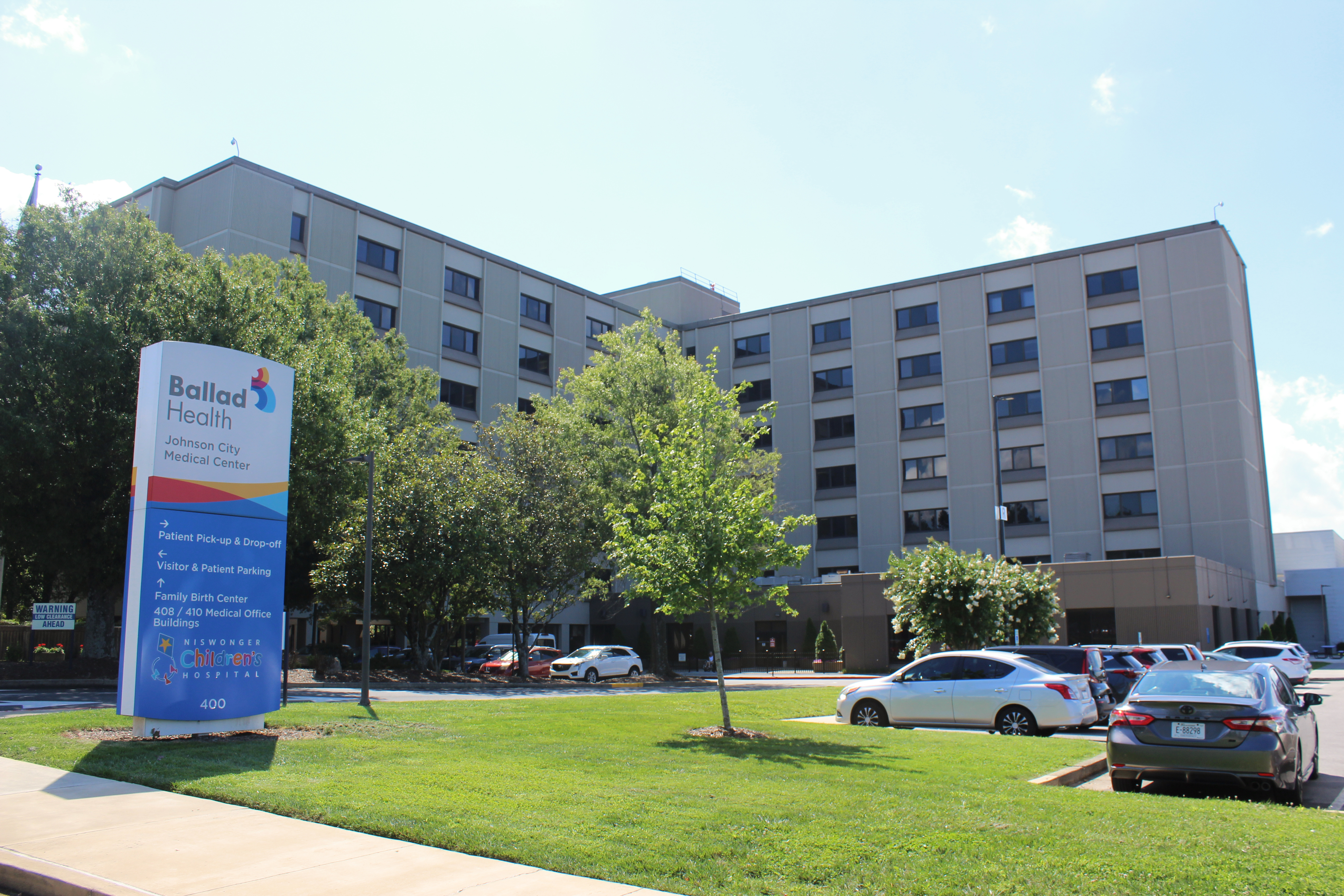An East Tennessee county commission will vote later this month on a resolution asking Tennessee lawmakers to break up or better regulate Ballad Health, a hospital chain that operates in the region as a state-sanctioned hospital monopoly.
But amid discussions of the resolution, Carter County Commissioner Nick Holder warned that if the resolution is approved at the commission's Oct. 23 meeting, Ballad could punish the county by pulling private funding for an ambulance it said it would pay for after the company closed the county's only intensive care unit.
Holder said Ballad made the ambulance funding threat after a previous meeting in the summer in which community members and some commissioners expressed frustrations over the hospital's transparency and process for closing the ICU at the Sycamore Shoals Hospital in Elizabethton, a town of 14,000 at the heart of Carter County in the northeastern corner of Tennessee.
"They were almost willing to take an ambulance from this county because of one meeting that made them mad," Holder said during the commission's Health and Welfare Committee meeting Oct. 3.
(READ MORE: New report finds almost half of Tennessee hospitals risk closure)
Ballad Health is a nonprofit hospital chain operating 20 hospitals covering 1.1 million residents over a 29-county region in Tennessee, Virginia, Kentucky and North Carolina. It's headquartered in Johnson City, Tennessee.
The hospital chain offered to pay for the ambulance because the Sycamore Shoals ICU closure meant the county's emergency management service likely had to spend more time transferring patients to the nearest unit at Johnson City Medical Center in next-door Washington County.
Holder told the Lookout he brought up Ballad Health's threats to express concerns about what could happen if the commission passed a resolution rebuking the company.
"If it passes, what's to keep (Ballad) from cutting more services or shutting down the biggest part of the hospital?" Holder said. "If you send it to Nashville, it might affect their profits or income."
The company later agreed to continue paying for the ambulance, Holder said.
Ballad formed in 2018 after Tennessee and Virginia lawmakers agreed to let Mountain States Health Alliance and Wellmont Health System merge and operate as a state-sanctioned monopoly under a Certificate of Public Advantage agreement.
The agreement allowed Ballad to operate as the only Tri-Cities area hospital system, blocking competition from entering the market.
In exchange for this special privilege, Ballad agreed to increased state oversight, including limiting price increases, maintaining health care quality standards and providing over $100 million annually in charity care.
Resolution stems from ICU closure
Ballad said in a letter to the Tennessee Health Department that the Sycamore Shoals ICU closure was necessary to "improve the cost-efficiency of services and avoid the unnecessary duplication of resources where such duplication does not provide a benefit to the community."
The company added that its Johnson City hospital is 9 miles from the Carter County-based facility and could provide the same services.
Angie Odom, the Carter County commissioner who drafted the resolution against Ballad, said commissioners need to call out and push back against the company because it's doing the opposite of what was obligated in the Certificate of Public Advantage agreement.
"There is a lack of confidence in what Ballad" says it is, she said. "We can't depend on their word."
Ballad short on obligations
Last month, an investigation by KFF Health News found that Ballad had met few of the Certificate of Public Advantage agreement's quality-of-care benchmarks and charity provisions.
From 2019 to 2022, Ballad fell $148 million short of its charitable obligation and sued thousands of patients in court to collect unpaid bills, according to documents released from the Tennessee Department of Health and reporting from KFF Health News.
The hospital chain also failed to meet about 80% of the benchmarks created to improve the quality of its health care, with federal health officials issuing one-star ratings to three Ballad hospitals, including the facility in Johnson City.
"If you really want a story, you should walk into our Johnson City emergency room in the evening, and you will feel like you've walked into a third-world country's hospital," Odom said.
(READ MORE: CHI Memorial Georgia launches fundraising effort for new Ringgold hospital)
Alan Levine, the CEO of Ballad Health, told KFF News the merger was successful because it saved at least three hospitals from closing, adding most of the quality-of-care issues were related to the pandemic.
The charity care fell short because Virginia expanded Medicaid, leaving fewer uninsured in need of it, he said. But Tennessee, where 13 of Ballad's hospitals are located, has not expanded Medicaid.
Health Department records show the state has waived Ballad's charity care requirement every year. Levine is well connected in Tennessee Republican circles, serving on Gov. Bill Lee's charter schools commission.
Ballad generated a combined net income of $206 million in 2021 and 2022 and received $175 million in COVID-19 relief funds, according to an S&P Global Ratings independent analysis.
The Lookout attempted to contact Ballad Health, sending several questions to the company using the organization's email media contact line. The hospital did not respond by the time of publication.
Read more at TennesseeLookout.com.

